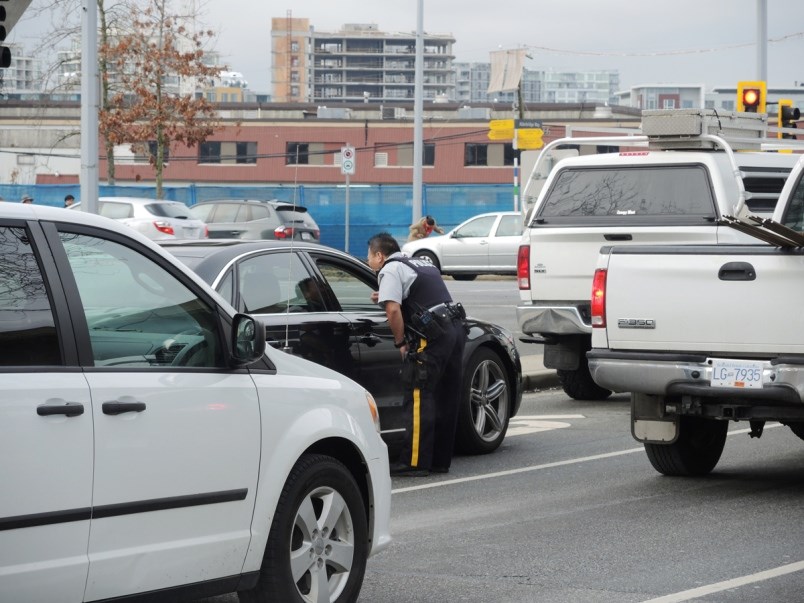There are still not enough people getting the message about the dangers of distracted driving.
That’s the frank message from Richmond RCMP after it completed a month of focusing on drivers intent on using electronic devices while behind the wheel.
Police forces across the province — in conjunction with ICBC and the B.C. government — used the month of March to target distracted drivers with the significantly increased $368 fine.
During intermittent days last month in Richmond, Mounties, with the help of police volunteers, ticketed 164 such drivers, including 74 in a single day blitz near the end of March.
Back in March 2015, only 87 motorists received the then $167 fine for the use of an electronic device while driving.
The number that year was down markedly from the same month in 2014, when 193 drivers were ticketed.
“There is still a major disconnect with regard to distracted driving,” said Richmond RCMP’s media relations spokesperson Cpl. Dennis Hwang.
“We are not finding that people understand how dangerous the practice is. Please leave your phone alone when you are driving. Everyone sharing the road will thank you.”
The Richmond News reported last month how the number of violation tickets issued for distracted driving in the city had exploded in 2016 by more than 50 per cent from the year before, from 1,170 to 1,833.
Despite increasing the penalties last summer to a $368 fine and four penalty points, distracted driving still contributes to more than one quarter of all car crash fatalities in B.C., with an average of 78 people killed every year, with 26 occurring in the Lower Mainland.
These startling figures now afford distracted driving with the unenviable title as the second-leading cause of motor vehicle fatalities in the province, behind speeding, at 89, and narrowly ahead of impaired driving, at 66.
Farhad Dastur, a member of Kwantlen Polytechnic University’s (KPU) psychology faculty, told the News last month how drivers need 100 per cent of their “cognitive power” to make split-second, emergency decisions on the road.
That 100 per cent, said Dastur, is eaten away by inexperience, age, health, road conditions, impairment and, of course, distractions.



